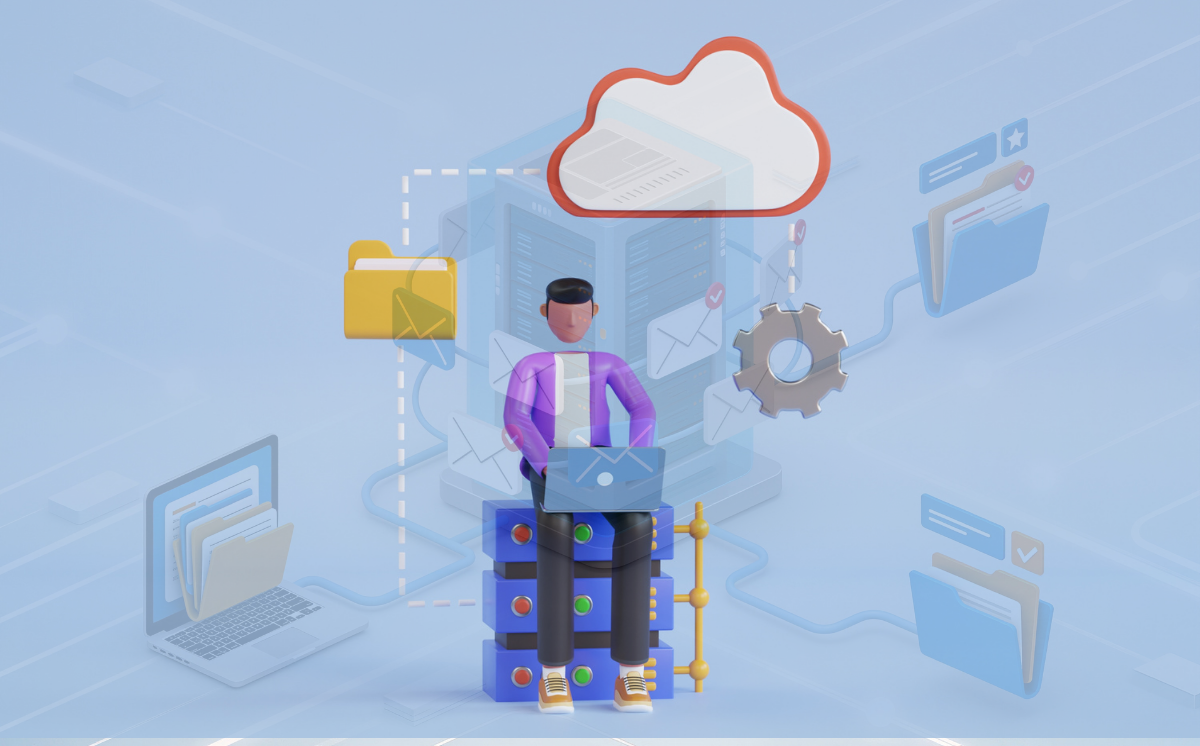The Importance of FinOps in Business
Embracing FinOps equates to adopting a tactical approach that harmonizes finance and operations, thus optimizing costs in a cloud ecosystem. It is the key enabler for businesses to make informed, strategic decisions, thus allowing investments in value-adding resources only.
With its vital role in creating a continuum between technology, business, and finance departments, FinOps blurs the lines to effectuate efficient cloud resource allocation. Thus, a business can maximize value from its investments, making FinOps a critical driver for profitability in the modern business landscape.
Why FinOps is crucial for businesses
FinOps, synonymous with Financial Operations, is a linchpin in modern businesses. Its strategic approach marries finance and operations to manage better, control, and optimize costs within a cloud environment, directly impacting the overall business efficiency.
- Helps businesses make more informed decisions on their spending, ensuring expenditure is only on value-adding resources.
- Fosters collaboration among technology, business, and finance teams, leading to efficient management and allocation of cloud resources.
- Maximizes the value of every dollar spent in the cloud by ensuring efficient usage and mitigating wastage.
- Empowers businesses to balance speed, cost, and quality in their cloud environment through clear visibility, continuous optimization, and tight control.
"FinOps serves as a financial compass, steering businesses towards cost-efficient operations within a cloud environment, enhancing overall viability and competitiveness."
Key Principles of FinOps
To efficiently manage cloud costs, FinOps revolves around three fundamental aspects: visibility, optimization, and control. It's a method focused on understanding cloud expenses' full scope, ensuring resources are utilized effectively, and ascertaining that all spending is within budgetary limits.
The pivotal role of visibility, optimization, and control in FinOps can't be overstated. These principles help organizations balance cost, speed, and quality in their cloud environment, thereby driving financial efficiency.
The underpinning concepts of FinOps, visibility, optimization, and control work hand in hand to streamline cloud financial management. By acquiring these principles, businesses can maximize cloud value, reduce wastage, and ensure prudent budget management.
Understanding the FinOps Lifecycle
The FinOps lifecycle manages cloud costs through three phases: Inform, Optimize, and Operate. Inform revolves around understanding cloud expenses, Optimize focuses on resource efficiency, and Operate integrates these cost-saving methods into regular operations.
The FinOps lifecycle is a continual journey for efficacious cloud cost management. It is an iterative process, fostering constant fine-tuning and improvement, assuring your business extracts the optimal value from its investments in the cloud arena.
Roles and Responsibilities in FinOps
A successful FinOps structure necessitates specific key roles. These individuals significantly influence the financial outcomes of cloud investments. Practitioners handle daily operations and work on cost improvements, service owners monitor specific services or applications, and executives make strategic decisions regarding cost-benefit analyses.
Understanding these roles is only half the battle; one must also recognize the core responsibilities within a FinOps team. This ranges from managing daily cloud operations, finding cost efficiencies, ensuring smooth operation of services, to evaluating strategic financial decisions related to the cloud. Everyone in this team plays a part in shaping your cloud's financial performance.
Tools and Technologies used in FinOps
In the whirlwind world of FinOps, choosing the right set of tools can make or break the cost management process. We lean heavily on management solutions such as Octopus Cloud to scrutinize the financial implications and optimize cloud usage.
Meanwhile, tech allies Tableau and PowerBI simplify data by illustrating financial complexities in tandem. Automation tools such as Ansible and Terraform guarantee resources are optimally harnessed, while communication platforms like Slack and Microsoft Teams bolster data-driven dialogues across departments. Over the APIs of Octopus Cloud View, all the tools can be connected and have the same source of truth.
How to Implement FinOps in your Organization
Identifying a cross-functional team
Building your cross-functional team is the vital first step toward implementing FinOps effectively. This team should ideally encompass members from finance, operations, and technology sectors, ensuring a balanced approach to managing your cloud infrastructure.
Creating synergy is pivotal in FinOps implementation. Thus, a cross-functional team is significant, ensuring diverse perspectives that foster collaborative decision-making and optimal management of cloud costs.
A well-aligned, cross-functional team can navigate the complexities of FinOps effortlessly. Each member's unique expertise contributes to a holistic understanding of FinOps, leading towards successful, cost-effective cloud management.
Establishing principles and practices
A vital phase within the FinOps implementation process is defining your principle-based approach. The core principles of visibility, optimization, and control serve as your compass, guiding financial decisions within your cloud environment.
Practice embedding is the next step, which entails the integration of defined principles into daily operations. This ensures consistent application and reinforcement of FinOps management across all levels of your organization.
Constant monitoring of these practices is crucial, allowing for ongoing optimization. This iterative nature injects agility into your financial operations, enabling you to swiftly adapt to the dynamic nature of cloud costs.
Using cloud cost management tools
Adoption of cloud cost management tools is an integral step in implementing FinOps. These tools enable precise tracking, management, and optimization of cloud spending, key for successfully applying FinOps principles.
Cloud cost management tools like Octopus Cloud offer comprehensive insights into the financial impact of cloud usage. Through their user-friendly interfaces, these tools simplify the complex task of cost tracking and analysis.
Another advantage is the empowerment they bring to FinOps. Accessing, analyzing, and understanding financial data in real time allows for quicker decision-making and promotes an attitude of financial responsibility throughout the organization.
By providing a clear picture of costs, these tools also support cost transparency – a pivotal principle of FinOps. This can lead to better cost management strategies and improved resource allocation.
Furthermore, when utilized correctly, they pave the way for continuous optimization. Potential cost inefficiencies are quickly identified, leading to significant savings over time, highlighting the value of these tools in the FinOps lifecycle.
Creating a culture of ownership
Promoting a culture of ownership stands as a vital part of FinOps implementation. Empowering every team member to feel accountable for their respective cloud usage fosters this ownership culture.
This approach drives proactive decision-making and promotes transparency in cost management. It instils an understanding that every cloud-related action has a cost implication.
In a FinOps culture, each individual possesses both the knowledge and the power to affect cloud costs. An employee fully aware of their impact will naturally start using resources more efficiently.
Overcoming the challenges inherent to FinOps implementation requires resolute ownership and accountability. This commitment helps to optimize budget allocation and improve overall financial efficiency in the long run.
Conclusion
FinOps emerges as a transformative approach, propelling businesses towards financial efficiency in cloud management. Its comprehensive methodology combines visibility, optimization, and control, driving informed decisions and ensuring prudent budget allocation.
By embracing FinOps, businesses can maneuver through the complexities of cloud costs, deriving maximum value from their investments. The shared responsibility and collaborative culture it nurtures are pivotal, establishing a firm foundation for cost-efficient cloud management.
Implementing FinOps is not without its challenges, but its potential benefits are profound. As businesses continue to evolve in this digital age, FinOps will undoubtedly play a central role in shaping their financial destiny, leading to a more prosperous and resilient future.








.jpeg)